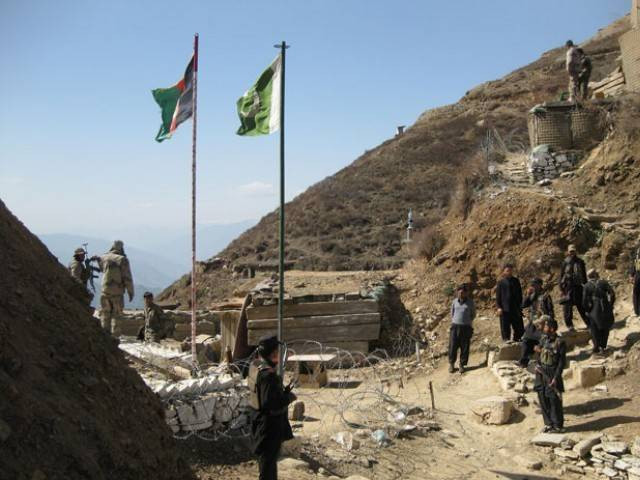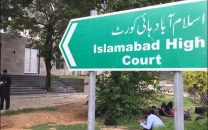#SealAfghanBorder: But first, some reality checks
Pakistan claims to have recorded 135 violations from Afghan security forces last year, claiming the lives of 18 troops

FILE PHOTO
The terrorist act once again highlights a set of issues confronting the security of both countries. Kabul has been increasingly protesting that tribal militants are escaping to its side with the advance of security forces in operations Zarb-e-Azb and Khyber-2. Prior to military campaigns in FATA, Kabul was blaming Islamabad for having terrorist sanctuaries in the tribal areas.
Pakistan urges Afghan govt to take action against Charsadda attackers
Last year, Pakistan claims to have recorded 135 violations from Afghan security forces, claiming the lives of 18 troops. The 2,430-kilometre frontier is marred by the 7,000-metre Hindu Kush mountain range in the north and treacherous elevation all the way to the south. Despite complaining of terrorist safe havens and infiltration from the Pakistani side, Afghanistan is opposed to physical barriers such as electric fencing, construction of a wall or digging up of trenches along its border. Kabul wants unregulated, free movement of Pashtun tribesmen across the border.
Hamid Karzai, the then Afghan President, termed General Pervez Musharraf’s proposal of building a wall and a fence along the border ‘untenable and opposed to ease of movement of tribesmen’. The border is scantly manned from the Afghan side, which has less to do with military capacity than the government’s writ outside the capital.
The Durand Line controversy
At the time of independence, Afghanistan was reluctant to recognise Pakistan as a sovereign country. After holding a Loya Jirga on July 26, 1949, the government in Kabul unilaterally announced that it sees the Durand Line as an imaginary line and that all previous agreements were thenceforth void.
Boundary with Afghanistan: Pakistan to improve border monitoring
However, Afghanistan consistently recognised the Durand Line in terms of visa issuances, trade and transit. Kabul agreed to ensure security and development through modern border management mechanisms at the third Regional Economic Cooperation Conference on Afghanistan. Though Soviet-back Pashtun nationalist movement during the Cold War and certain elements even now refuse to accept the British-era borderline, Afghanistan cannot legally, unilaterally change its borders with Pakistan.
As per the international law principle of uti possidetis juris – directly applicable in the context of decolonisation – Afghanistan and Pakistan like other newly decolonised states are bound to have the same borders that their preceding dependent area had before their independence. After his Paris meeting with Afghan President Ashraf Ghani, Premier Nawaz Sharif said, “Pakistan is prepared to hold serious discussions on better border management so that cross-border movement of terrorists can be contained. It is important to finalise border SOPs as early as possible.”
Meeting held between Pak, Afghan military commanders at Peshawar Corps Headquarters
The way forward
Pakistan claims to use ground radars and spy drones for border monitoring besides increased combat patrolling and conducting intelligence-based operations. Furthermore, deep excavation has been carried out on an area spanning 450kms.
According to prominent international law expert, Ahmer Bilal Soofi, it is a misunderstanding that the text of the Durand Line Agreement grants easement rights, thereby enabling cross border movement at will. “These easement rights have nowhere been expressly mentioned or implied in the Agreement but have evolved outside its framework through practice by tribes divided by the Durand Line.”
Therefore, both sides need mutually agreed legislation, which can define easement rights along with issuance of special 'easement right user IDs' to tribesmen. Additionally, the two countries can adopt templates like Integrated Border Management of the European Union of physical fencing as erected long the US-Mexico border.
Recently established hotline between Pakistan and Afghanistan can prove an important stepping-stone for further confidence building measures and mutually agreed operational level mechanisms. The border issue could have been solved during the tripartite conference when NATO troops were stationed in Afghanistan.
Afghan elements perpetrating terror in Pakistan: PM
Joint border patrols and border post level coordination are possible in certain areas where Afghan security personnel can safely operate and geography permits such measures too.
Pakistan is vital for landlocked Afghanistan’s development and security. Islamabad can’t realise its dreams of deeper commercial ties with Central Asia and Caucasus without good relations with Kabul. With shared interest and common threats, the two countries can’t delay modern day mechanisms for managing a border whose volatility not only threatens domestic peace but regional and global peace too. Afghanistan's new found trust in China as a guarantor is a good omen for all stakeholders.
Naveed Ahmad is a Pakistani investigative journalist and academic with extensive reporting experience in the Middle East and North Africa. He is based in Doha and Istanbul. He tweets @naveed360



















COMMENTS
Comments are moderated and generally will be posted if they are on-topic and not abusive.
For more information, please see our Comments FAQ